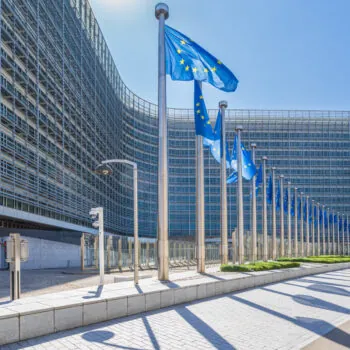With the latest IPCC report serving as a stark reminder of what is at stake should climate action fail, governance is a missing link in ensuring climate action can happen at pace and scale – with fairness and people at the centre. Funders in the climate and governance communities have an opportunity to work together to unlock the potential for more impactful programming.
In 2022, the Transparency and Accountability Initiative and E3G brought funders across the climate and governance spheres together for a learning series exploring how transparency, participation and accountability can reinforce impactful climate action. Here, we share some of the lessons from the series. We saw the potential for climate funders to tap into the knowledge and approaches of their governance peers rather than reinventing the wheel, while those in the governance field have much to offer but also much to lose in the face of climate policy failure.
Climate change is a governance failure – and addressing climate change requires good governance
Climate change and our inability to effectively respond to it is a governance failure. Climate resilience has been approached as a project-level engineering problem, while a systemic response has been missing. For instance, uncertainty over who is responsible for investing in resilience and the relative role of private actors and the state has presented barriers to progress, while national planning assumptions are often inconsistent and ignore worst-case scenarios. Better governance can complement better engineering. There is potential to leverage transparency, participation and accountability practices, for example, by incorporating participatory budgeting processes into risk and resilience spending as a path to greater community ownership and oversight of projects.
Climate initiatives must be grounded in context
The transformation needed to achieve climate neutrality and adapt to climate change means taking on vested interests, bureaucratic inertia and shifting individual behaviours. Learning from governance models has great value, allowing potential solutions to be replicated at scale and pace in different contexts. But copy and paste approaches won’t stand the test when faced with the realities of local actors, varied institutional and economic contexts, and competing interests.
Political economy understanding has a vital role to play in ensuring context-specific approaches to governance in climate and energy initiatives. For instance, the political economy context in a country will shape the policies and governance arrangements needed to secure, formulate and deliver on Just Energy Transition Partnership (JETP) deals. Political economy perspectives on the whole JETP system, from domestic to international actors, will be vital for identifying the barriers, opportunities and leverage points associated with JETP deals. ensure that programming and governance aspects are designed in a way that reflects local realities and offers the best chance of effective implementation.
Success requires localising conversations and placing people at the heart
Local, people-centred dialogues are vital to help sustain and grow the social consent necessary for successful transitions. Increasingly transitions will shift from the sectoral to whole-of-economy, politics and society transitions. We have work to do to improve the quality of decision making, build public trust and ownership in the transition, and mitigate risk of backlash.
Leaving no person or place behind is a core principle of the European Green Deal (EGD). However, facing multiple on-going crises, EU governance and decision making has become more technocratic and top-down. Survey results show low trust in national governments in the EU and that the public blames governments for contributing towards the energy and cost-of-living crises. An inclusive governance approach to the transition – centred around equity, justice and participation – can help build long-term public consent needed for successful EU climate action. This could involve introducing mandatory social and just transition conditionalities to codesign, implement and monitor the EGD.
Connecting and empowering stakeholders at all levels must be a priority
Civil society can only offer their knowledge, expertise and advocacy to climate action if they have the freedom to do so safely, yet, only 3.2% of the world’s population lives in countries with open civic space. Funders need to invest in defending activism and enabling the inclusion of civic actors in decision-making about the transition. This also holds true for the EU where civil society has limited opportunities to shape policymaking. Funders can help connect local stakeholders to international decision-makers and everyone in between and ensure that their voices are recognised as legitimate.
Building such ecosystems takes time, and meeting the climate challenge will take scale. Philanthropy in the governance and climate communities is well-placed to step up and support civil society.


